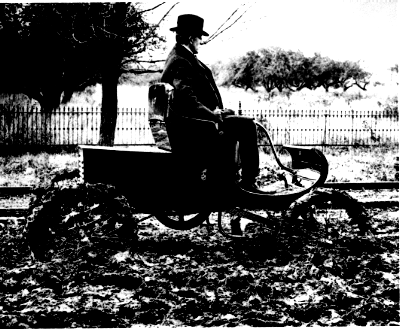Meditation for
Beginners
Jack Kornfield
(Sounds True)

In our review of The Inner Art of Meditation we wrote
- when I first started in on Tape #1, Kornfield's speech patterns came across not like some guru master but a juvenile delinquent from the Bronx. His voice reminded me of a radio program about a 50s teen-ager named Henry Aldrich. When his mother called --- or bellowed --- "Henry. Henry Aldrich!" his cracked-voice response, "Coming, Mother," was supposed to be very funny. And although I suspect that Kornfield is way past puberty, he speaks more Henry than (say) Alan Watts or Ram Dass.
"However," we concluded, "by the third session, when he told us from personal experience how to do fifteen minutes of meditation with a fly crawling around on your face, or when he delivered the story of his master telling him to meditate sitting on the edge of a well (he kept falling asleep in meditation; his master thought that being on the edge of a forty foot drop might cure that; he was right) or when he described getting pissed at his master ("You're supposed to be enlightened! Yet you constantly contradict yourself!") --- after these tales, he had won my heart, and now I find that I, too, am beginning to talk more and more like Henry Aldrich."
So we came filled with expectations, for Buddhist Meditation for Beginners. There are phrases, thoughts, and insights aplenty. He gives brief and cogent summaries of the different schools of Buddhism, the Four Noble Truths, the Eightfold path. He refers to the babble in our minds as "the bureaucracy of the ego." He wonders at Americans who dress up family corpses "as if they are going to a party." He tells of the two ex-prisoners, years after gaining their freedom. "Have you forgiven the guards yet?" asks none. "Never!" says the second. "Then," says the first, "You are still in prison."
We do have some reservations about this compilation. The first is that silly, ever-present Buddhist bugaboo: should we protect, let alone let live, all creatures great and small? I could agree with Kornfield on roaches (too gross when you squash them) or spiders (they eat other bugs). But when it comes to mosquitoes I draw the line. "Brush them off," he tells us. My foot.
I notice all these "line-and-let-live" advocates live in the northern frost-zone, where the worst you can get from a mosquito is an itchy welt. For those of us who spend some time nearer the equator, there are a few other things that comes along with the mosquito "bite."
Despite what people say, mosquitoes don't bite. They shoot you up with mosquito spit before they commence suckling your blood. The anesthetizing juice that they squirt in your capillaries contains various foreign beesties. Years ago it was yellow fever. Another, still present, is malaria. Another, one that is now beginning to plague those of us who live in the tropics with global warming, is dengue fever. Pronounce it "din-gay" to rhyme with Tokay. But not as merry. By a long shot. It used to be called "Breakbone Fever," and that's exactly what it feels like when it takes you over.
There are four types of dengue. #4, the most severe, is known to kill people, especially children and the viejos. Like me.
If Kornfield thinks I am going to spend the evening "brushing away" these carriers of death, he has another think coming. Squash the bastards, I say, and proffer the advice to their little flat spidery corpses that they might want to come back next time in a slightly more benign form. Like a Nabokovian butterfly.
Finally, there is something a little weird in this collection of six CDs. The whole is, apparently, a compilation drawn from Kornfield's many different presentations from over the years. Some are lively, with a very lively --- almost too lively --- audience. Other parts are presented solemnly, with a rather quiet audience. There are edits in which Kornfield's tone changes suddenly, as if he had changed his mind, or as if the editors are cutting from one recording to another.
There were also repetitions, as if the producer didn't listen carefully to earlier sessions, or was in a hurry. Since Kornfield is a careful presenter ... building to dramatic conclusions, pacing himself nicely ... we found these edits and juxtapositions to be somewhat jarring, if not out-of-character.


 Wood tells us that there are three types of mud, I, IIa, and IIb. I can't see that these three help the reader very much. In 1964, Supreme Court Justice Potter Stewart famously said of pornography: "I shall not today attempt further to define the kinds of material I understand to be embraced ... but I know it when I see it." I think you and I would know mud when we see it (or slip in it).
Wood tells us that there are three types of mud, I, IIa, and IIb. I can't see that these three help the reader very much. In 1964, Supreme Court Justice Potter Stewart famously said of pornography: "I shall not today attempt further to define the kinds of material I understand to be embraced ... but I know it when I see it." I think you and I would know mud when we see it (or slip in it).